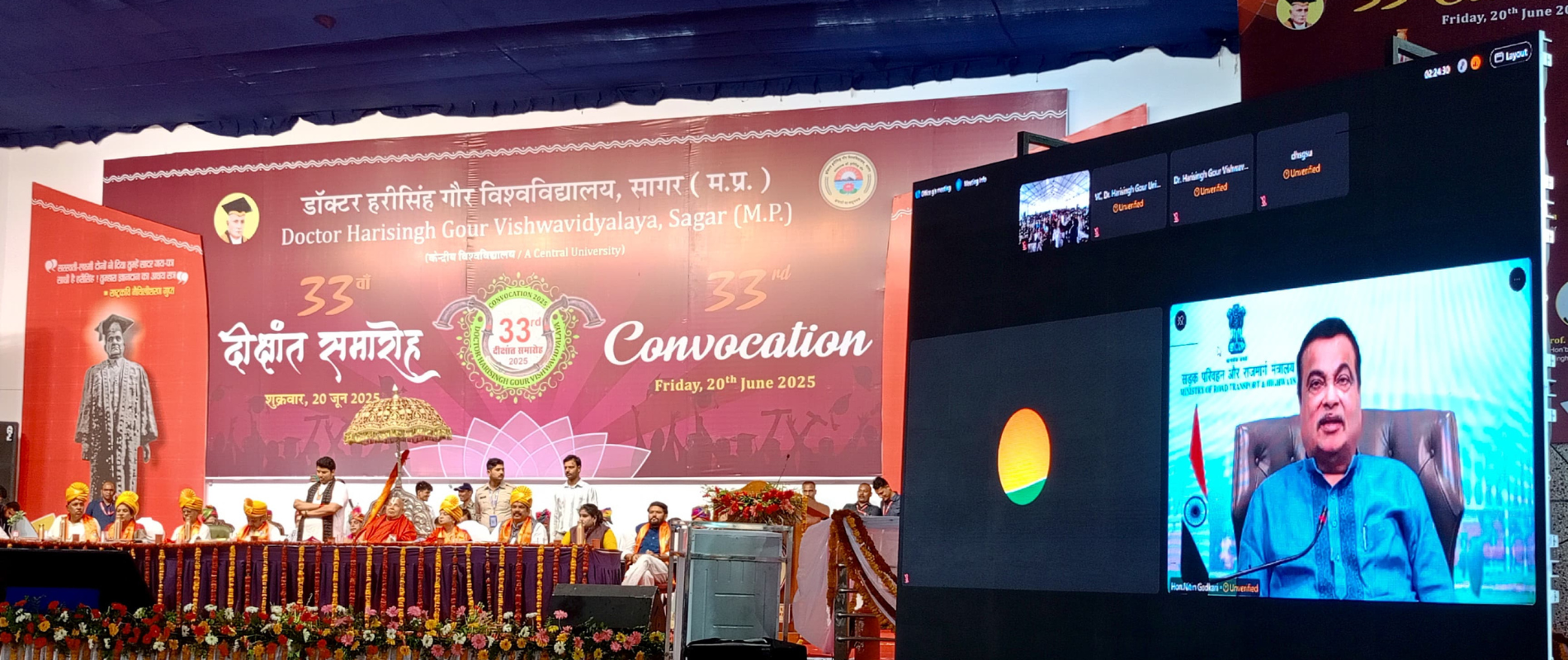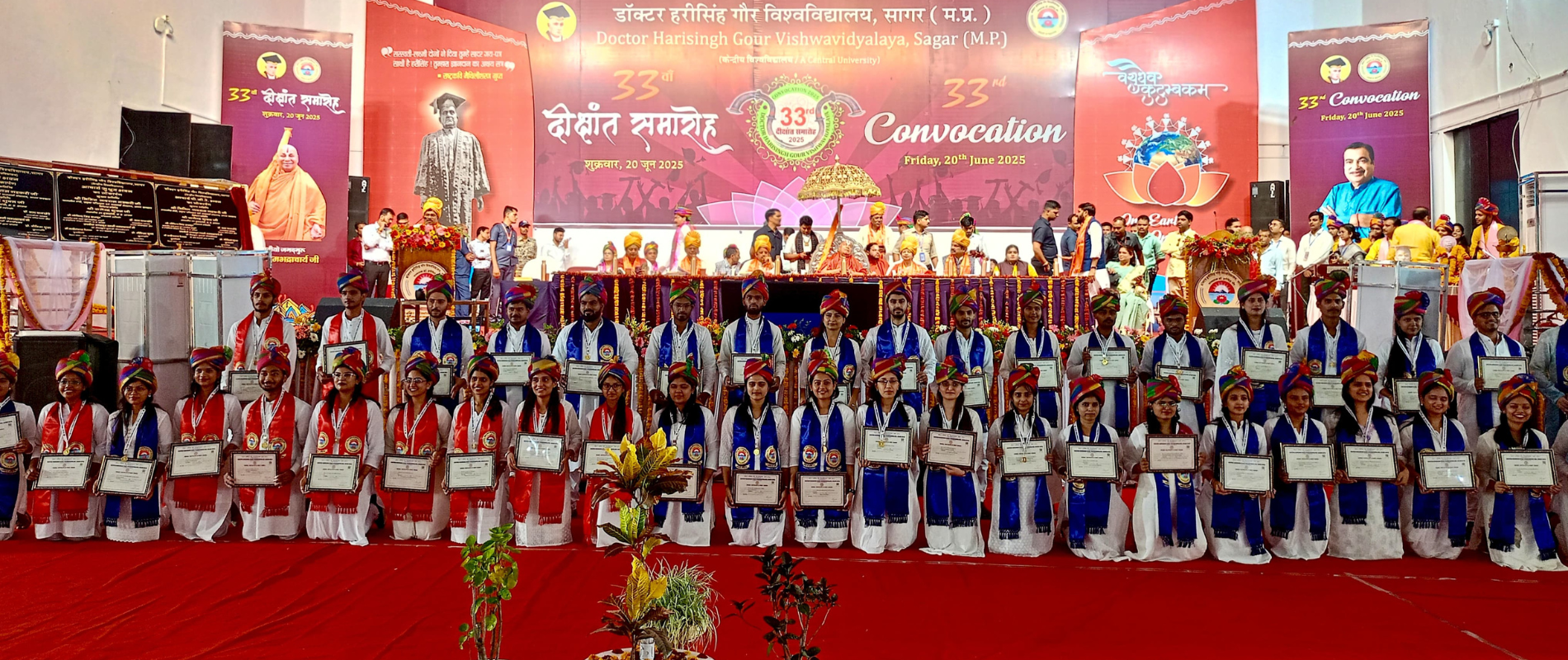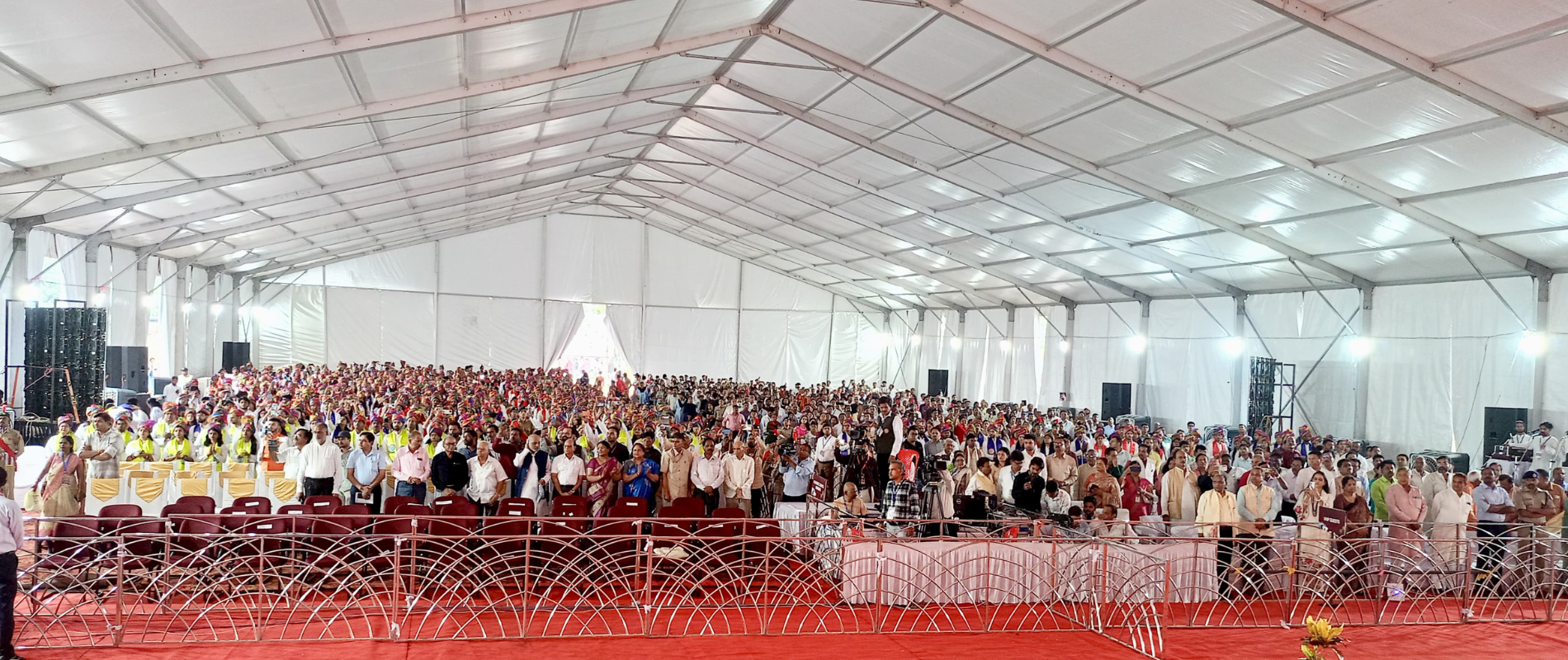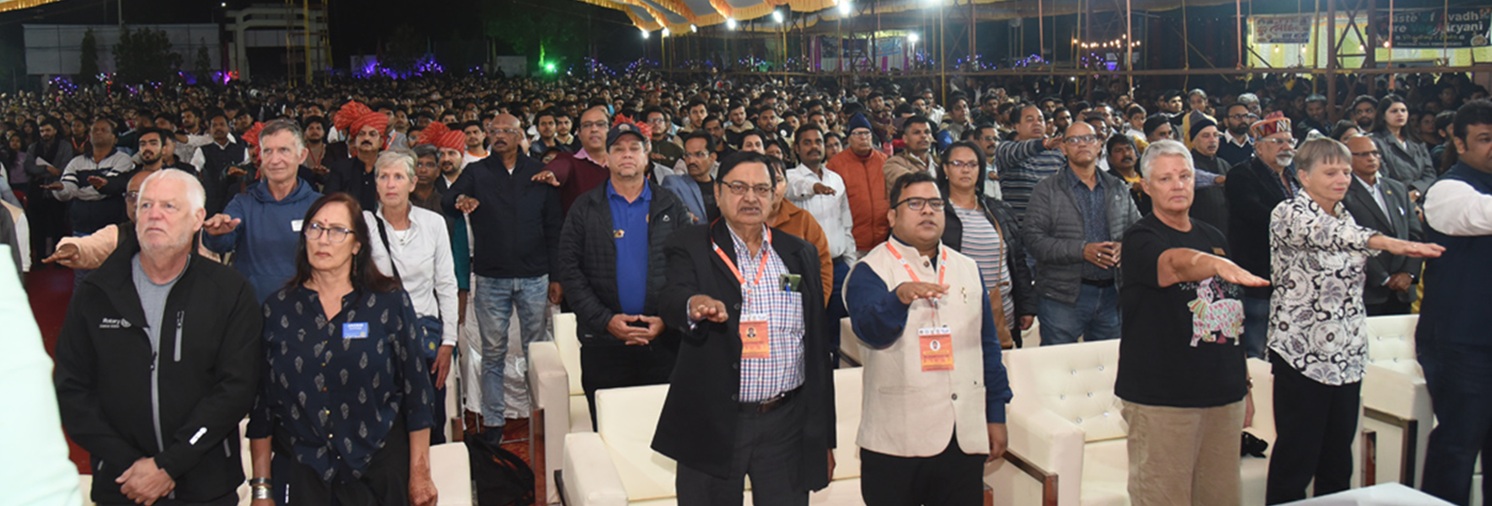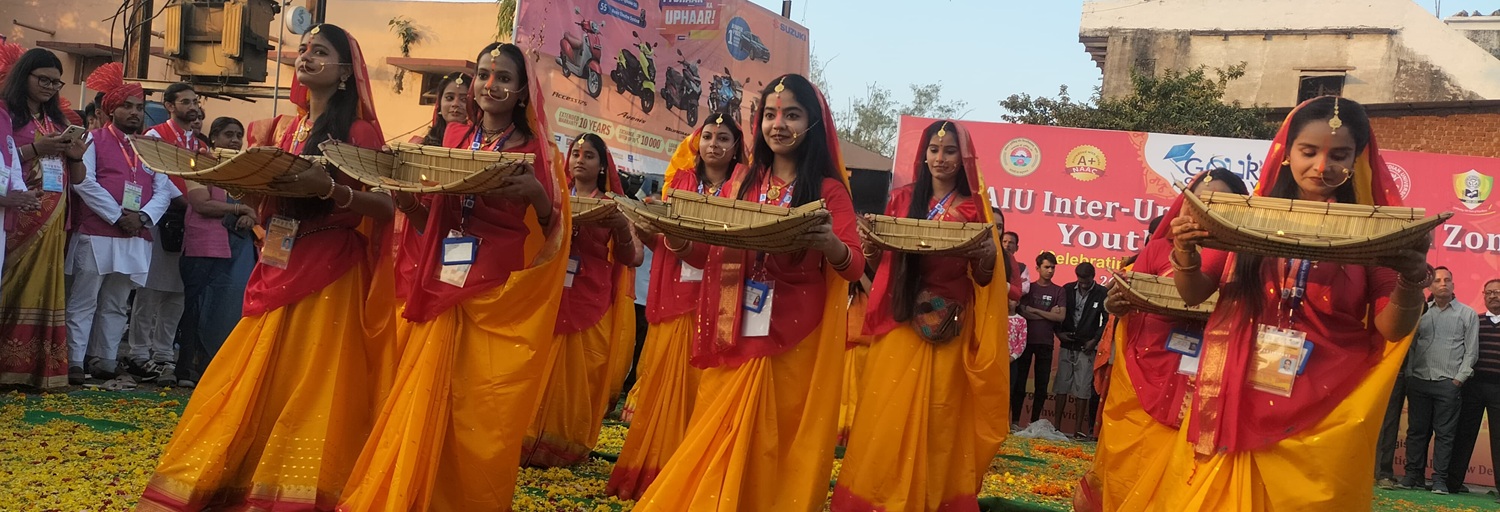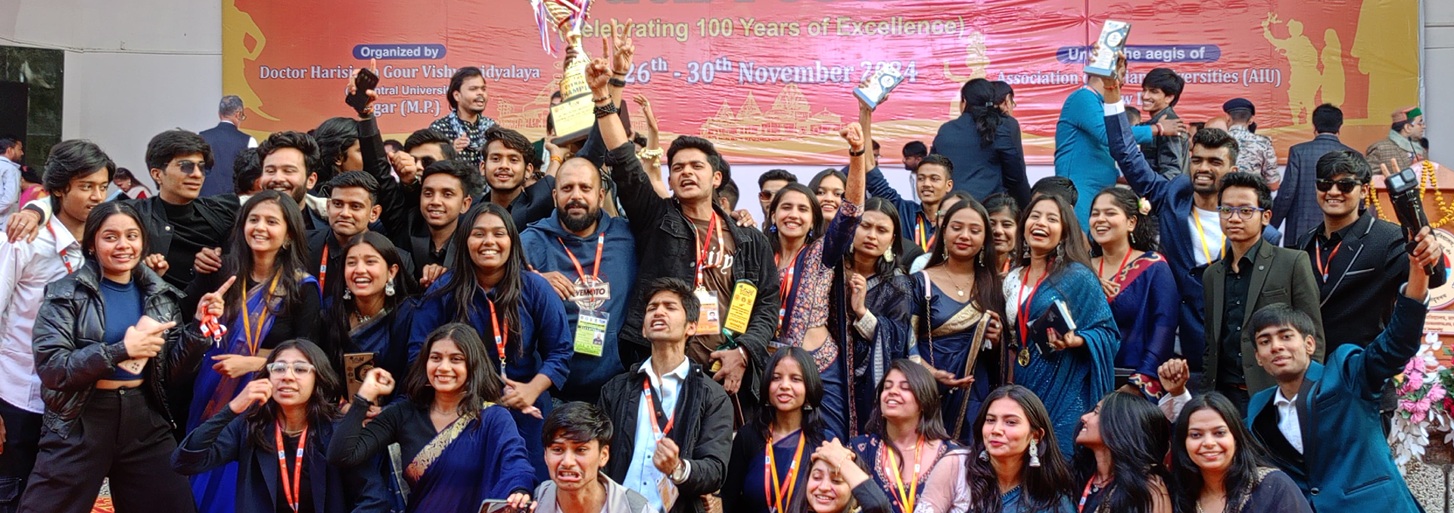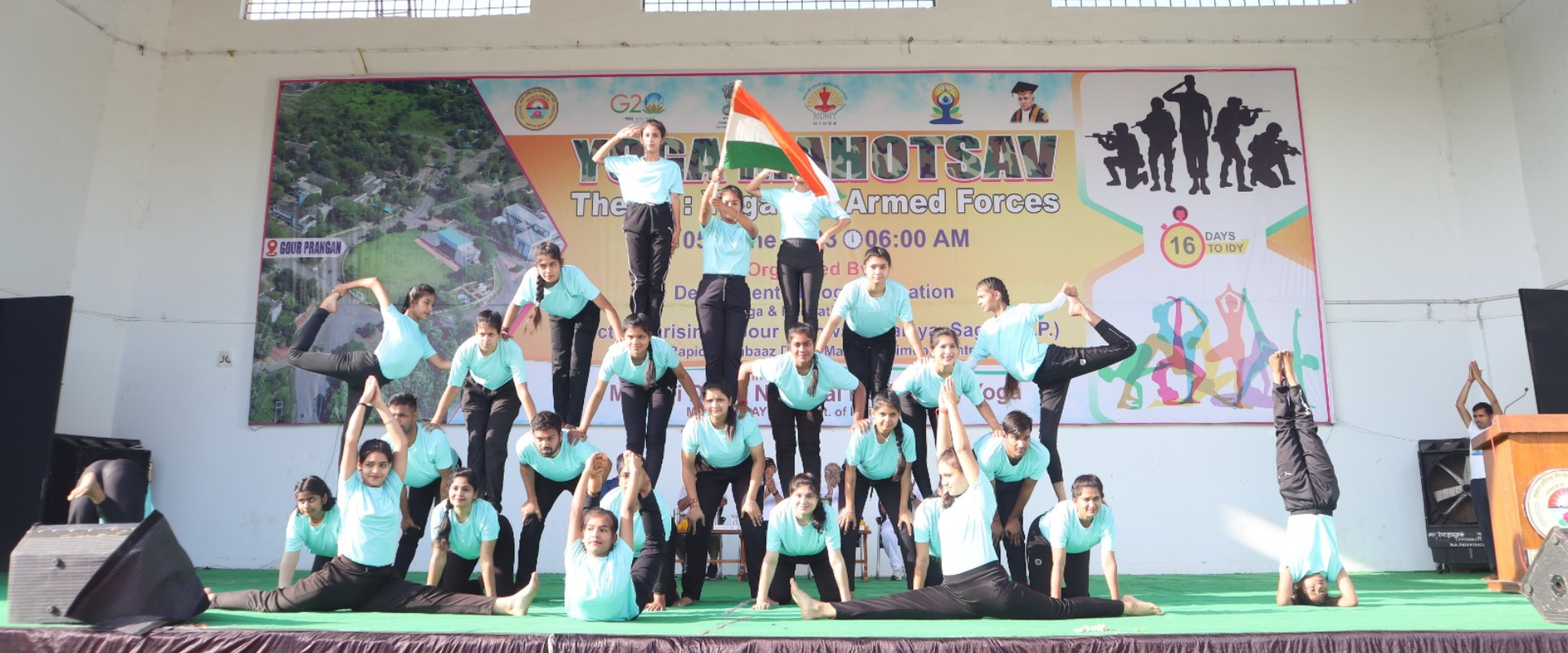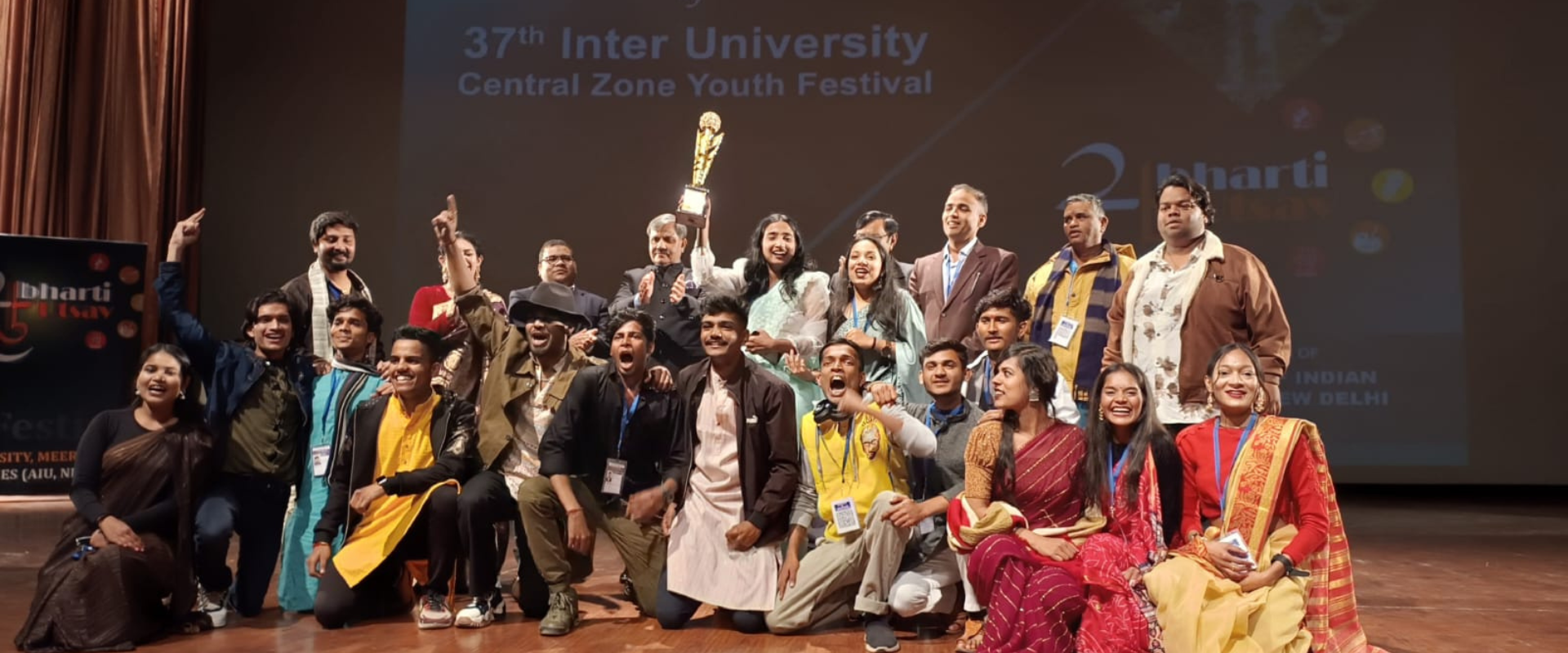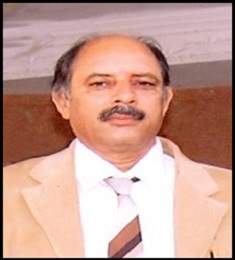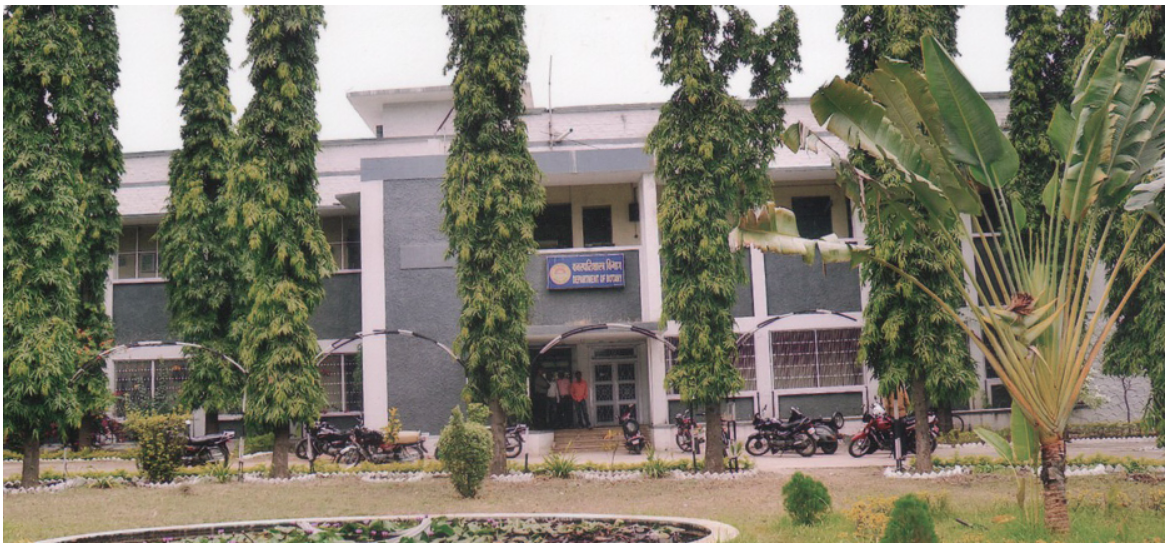
 |
|
|
Prof. M. L. Khan (Head) |
"Visitor's Award -2021 (Biological Sciences) conferred by President of India to Professor Mohammed Latif Khan" |
Departmental IQAC Profile
Criterion 1 :- Curricular Aspects
Criterion 2 :- Teaching-Learning and Evaluation
Criterion 3 :- Research , Innovations and Extension
Criterion 4 :- Infrastructure and Learning Resources
Criterion 5 :- Student Support and Progression
Criterion 6 :- Governance, Leadership and Management
Criterion 7 :- Institutional Values and Best Practices
About the Department
The Department of Botany was established with the inception of the university in 1946. The founder of the department was great Prof. R. Misra, FNA, known as the father of Ecology in India. Subsequently, it was nurtured under the leadership of Prof. S.B. Saksena, FNA, a renowned mycologist.
The Department of Botany has been in the forefront of teaching and research in plant sciences since its establishment in 1946. The Department stands today as a unique institution in the Central India with multidisciplinary and interdisciplinary teaching and research in plant sciences. The uniqueness of the Department essentially lies in the fact that within the Department’s faculty, there are experts and active researchers representing almost all areas of plant sciences. We believe that to be effective, undergraduate, and postgraduate teaching must be done by teachers who are also actively involved in research in their respective areas of specialization. We have developed a teaching programme that stresses on the uniformity of principles of macro as well as micro molecular mechanisms in all living systems. The Department, serves as a catalyst in the vital scientific and educational activities of India and has a commitment to continue its service to the nation.
Quality teaching requires ongoing research activities, which needs a good deal of financial support. The research fellows of the Department constitute the core of its research activities. The Department has been operating several research projects funded by various National and International agencies; National funding agencies like Department of Biotechnology, Council of Scientific & Industrial Research, Department of Science & Technology, Ministry of Environment and Forests, University Grants Commission. The financial support received through these projects thus not only enables the faculty members in running their research programmes, but also enable the students to take challenging and modern research topics for their Ph.D. thesis. The faculty of the Department has produced quality research publications in reputed national and international journals e. g. Nature, PNAS (USA), Nature Ecology & Evolution, Nature Plants, Journal of Ecology, Critical Review in Biotechnology, Total Science of Environment, Ecological Indicators, Biodiversity & Conservation etc. The sustained efforts of the faculty have resulted in numerous awards, honours, and recognitions to the teachers as well as the students of the Department. In recognition to his contributions in the field of Biological Sciences, President of India has conferred 7th Visitor Award - 2021 on Professor Mohammed Latif Khan. In addition, we have the honour of having had two Fellows of the Indian National Science Academy (FNA) and one Fellow of the National Academy of Agricultural Sciences. In recognition of the excellent work carried out by the department, the University Grants Commission has extended its financial support to the Department under its DRS and SAP programmes. The non-teaching staff of the Department actively assists the faculty in carrying out its teaching and research programmes. Besides helping in the conducting the practical classes of B. Sc. and M. Sc. students, our technical staff and gardeners help in maintaining the herbarium and the botanical garden.
The level of expertise available with us and the infrastructure we have makes it imperative for us to think about the future activities of the Department in fulfilling its mandate of providing training of the highest quality to students of the region and the country at large. In this context, we have taken cognizance of the high richness of floristic wealth and diversity of ecosystems and gene pool in the region. Due to the mosaic nature of geo-climatic conditions in the region, the flora and vegetation of Central India shows enormous variation. The region is also home to a large variety of traditional crops specially of millets that could form an important component of human diet in times to come. The rich biodiversity of the region can generate economic value in terms of extractable plant products, compounds, genes and species. In view of increasing human activities of various types in the region and the upcoming patenting regimes, there is a need for proper evaluation, characterization, documentation, and conservation of the plant genetic resources of the region for utilization and economic well-being of the people.
The Department is emphasizing research in following areas: microbial diversity and its conservation; survey of plant genetic resources of the region, their taxonomic characterization and establishment of physical and electronic herbaria; conservation of plant diversity using both in vitro as well as in vivo technologies; establishment of gene bank of the region; molecular characterization of rare, endangered and endemic plants of the region; ecological analysis of forest ecosystems of Central India including plant biodiversity inventory and conservation; ecology of agro-forestry ecosystem; documentation of plant genetic resources using molecular markers; molecular phylogeny and ecology. These studies may help generate economic value in terms of extractable plant products, compounds, genes and species, for conservation of ecosystems and plant genetic resources for utilization and economic well-being of the people.
Infrastructure
Over the years, the Department has been able to develop one of the best infrastructures for its teaching and research programmes. Four lecture halls and two laboratories provide exquisite environment to the students for their studies. One lecture hall, located in the Maharshi Kanada Bhavan, is equipped with audio visual facilities to impart quality teaching to the students. The laboratories are designed to provide students adequate working space, comfortable seating, personal cupboard and a supply of glassware, chemicals, and equipment. To aid further, students are having access to the Central Instrumentation Facility, Research Laboratories, Botanical Garden, Nursery, Library and Computers.
The research activities of the Department are spread over nine laboratories; each faculty supervising one laboratory. Doctoral and Post Doctoral students constitute the core group working in these laboratories. All the laboratories are replete with the requisite furniture, equipment, glassware, and chemicals. Most laboratories also have computers connected to Wi-Fi of the university. This has facilitated access to online databases and the UGC INFLIBNET service.
The seminar hall (named after Professor Saxena) is the most important venue for the Department’s faculty, research scholars, and PG students to exchange ideas, discuss ongoing research and future perspectives. Lectures of visiting faculty, seminars of research scholars and degree students are organized in this hall. The hall is equipped with multimedia projection system. We are in the process to establish a fully airconditioned central instruments facility with the funds received from DBT-Builder Programme.
Since its establishment, the Department has maintained an herbarium to assist the faculty members, research scholars, students, and visitors from other institutions in identification and study of plant specimens. The herbarium has a collection of over 350 plant species and 1500 specimens predominantly from the Central India. The collection includes the specimens of rare, threatened, endangered and medicinal plants. All specimens are arranged according to the Bentham and Hooker’s system of classification. The herbarium continues to get richer by the contributions of teachers, research scholars and students regularly. The Herbarium is a miniature representation of plant diversity of the Central India. Currently, the herbarium is engaged in accessioning of specimens, creation of a database and digitization of the specimens. This facility is also manned by a STA.
The Department has established a Botanic Garden spreading over 15 acres and a Nursery located within the campus of the University. Botanic Garden of the department harbor over 600 species and is a treasure of rare, native, and exotic plants as an Ex-situ conservation management center. It is one of the prestigious botanic gardens of the country which is also a member of the Botanic Garden Conservation International, Kew, United Kingdom. The botanical garden is center for environmental awareness to school children, college students and public. Overall, it adds to the scenic beauty of the campus landscape. The Botanic Garden houses 2 green/net houses, 2 polyhouses, a glasshouse, a fern house wherein we maintain many of the rare and threatened plants of the region.




